“It helped make the future visible” – Reflections on our spring gatherings
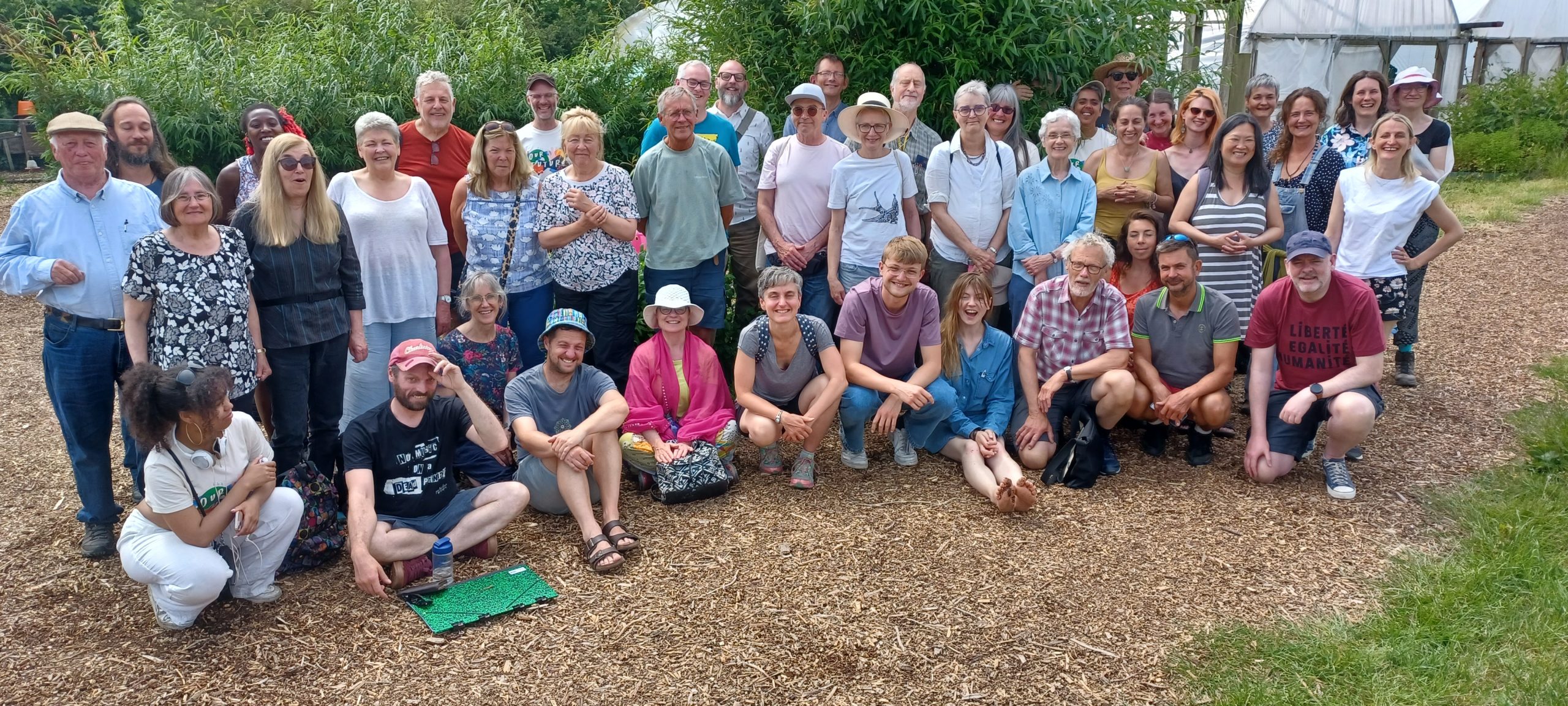
22 June 2023
10 minute read
After a long time on Zoom, with online events like our Together We Can and What Next? summits and connecting on digital platforms – it felt both fabulous and weird to see each other in three dimensions! This was the first time since the pandemic and since our Transition Together project launched that we could bring groups together in person.
We face serious challenges – it was a good moment to reconnect, revisit our vision of resilient and thriving communities, where everyone has their needs met and a voice in shaping the future. It was also a time to listen to the movement as we explore the future structure of Transition in England & Wales, and how our project can best support the work on the ground.
Two regional gatherings were held; smaller, deeper events forging connections that could grow in that area. Each was rooted in the chance to see Transition in action. In May, the London gathering began with three days touring group projects, giving a glimpse of what Transition looks and feels like, and its impact, in communities across the city.
Co-founder of the Transition movement, Rob Hopkins joined the tours – he spends his time writing, podcasting and speaking here and abroad about how we can reimagine and rebuild our societies for the future. For him, visiting Transition projects like these allows him to root those ideas in the everyday work and change already happening at a local scale.
He said: “At one community garden, someone said what this project grows is much more important than food, it’s the connections and relationships, and that’s really core to our resilience. What these places are building is a new story about decarbonising our future, what it could be like and giving people a taste of a different future, they are bringing people together. To see it in reality was so inspiring.”
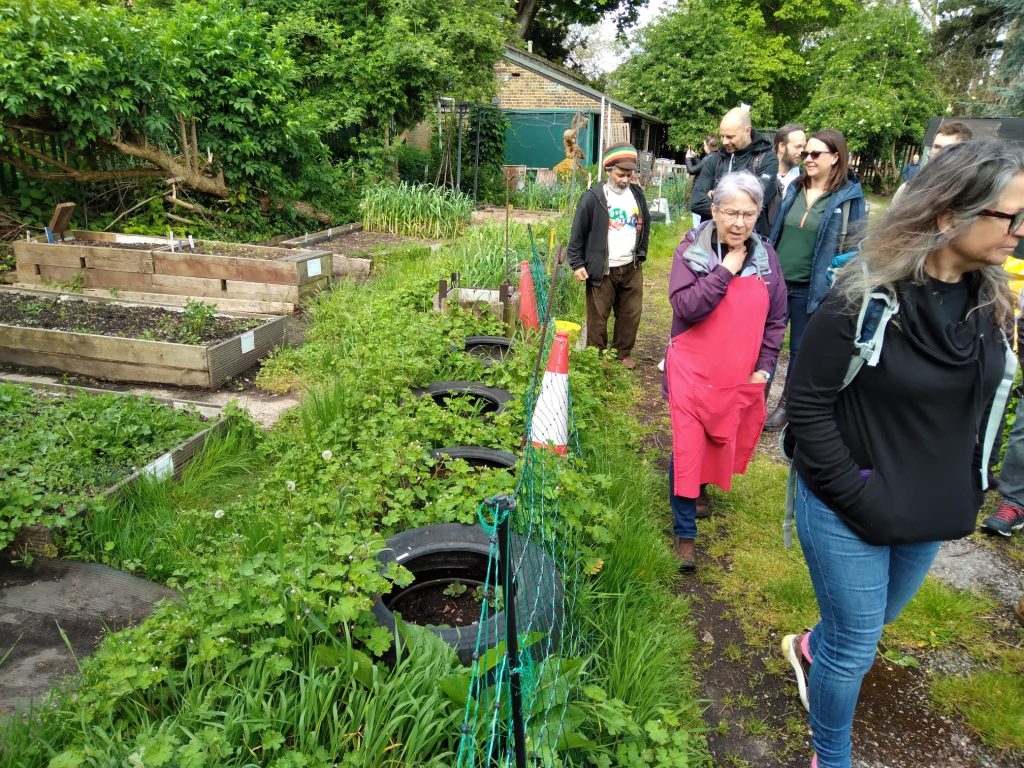
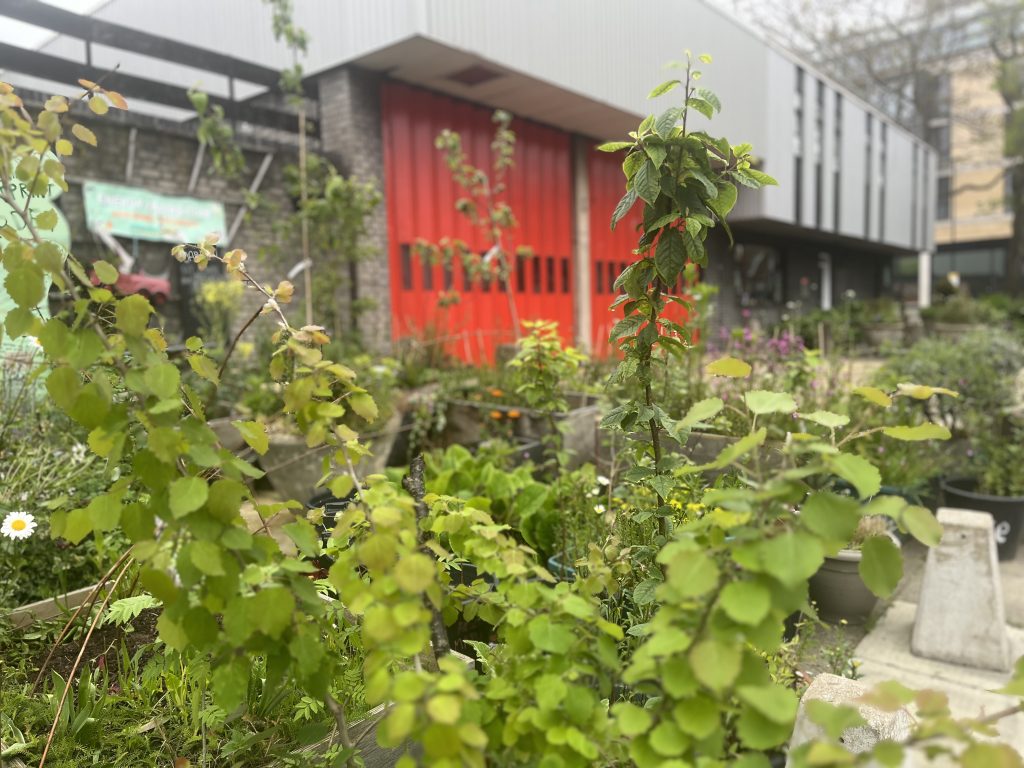
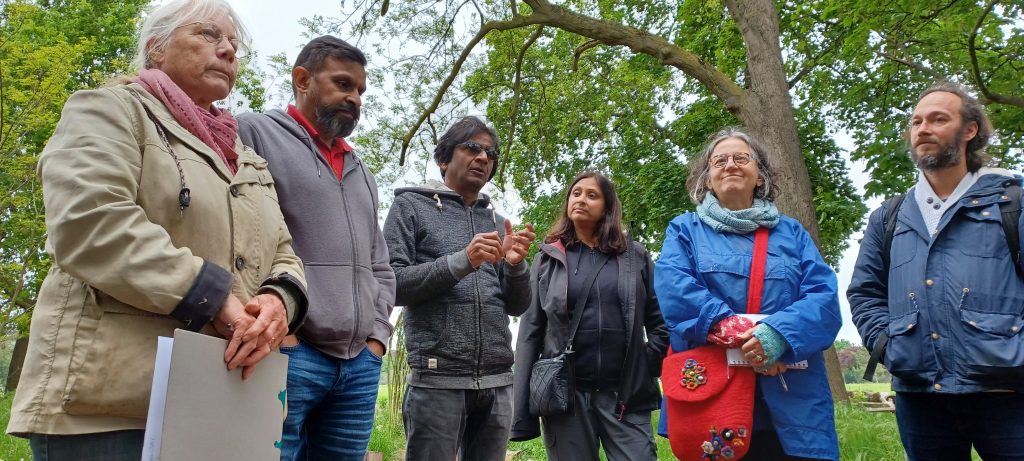
In fact, several of the projects were gardens or green spaces, often the physical places which Transition groups have as they explore how local food and nature can flourish, start to bring people together, and to use as a hub for many other activities taking place in other temporary or borrowed spaces. They are symbolic of the practical action Transition groups do. One participant, Will, wrote in a poem inspired by the gatherings, about seeds of change dispersed “In a breeze of hope and possibility… A unique expression of the people it serves. Providing the rich soil within which community can strengthen its roots.” (read all of his beautiful poem below).
Another participant Felipe, originally from Brazil but now involved in Transition in Portugal, said “The diversity of things you can do in an urban space has been amazing for me. And to see the personality of each project – that it’s really related to the community, it’s really beautiful to see that. Seeing people really putting their lives into projects to imagine and to think about a future that’s more connected to nature – it gives a lot of hope!”
To help us capture our gatherings, we created a short term role specifically designed to open doors – and to allow us to learn from – a young person from a background traditionally under-represented in our movement. We were so delighted that Ava James, co-founder of Not a Trend, agreed to take up the role, and to get to know her and her work over both events. Ava had no previous involvement with Transition and we welcomed that fresh perspective! She joined the London tour on the opening day, at Think & Do’s Sharing Space in Camden, a take-over of an estate’s tenants and residents association hall for the community to share time, food, skills and stuff with neighbours.
Ava reflected: “Speaking to those who ran the project, they were well aware the project was something that needed to be constantly evolving with the community, being powered by the residents and what they want to see in their sharing space.” She found this fitted with how Transition is organised: “Not all communities are the same, each has different needs to make their Transition Towns work and be best suited for them. A ‘one size fits all’ approach does not work – leading to a beautiful diversity within projects across different locations.”
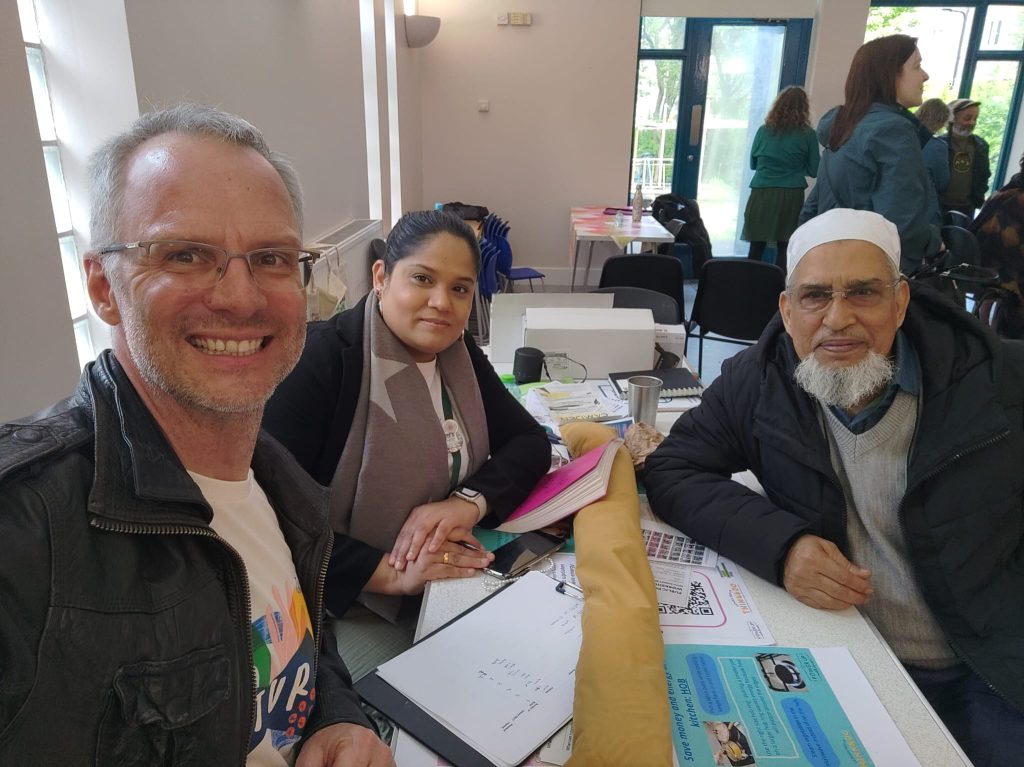
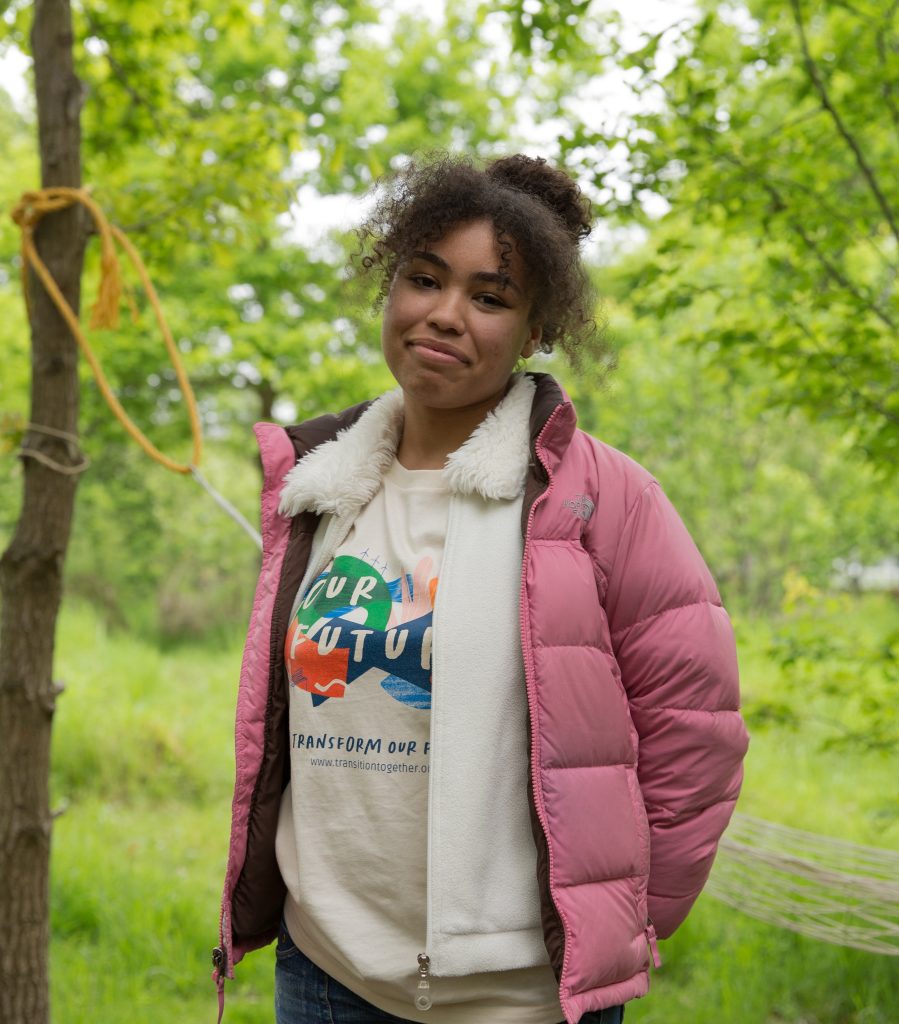
Ava continued: “The sharing space is home to a wide range of different cultures, which shape the activities within the space, one of which was a sewing and mending space. A community sewing machine was used to mend clothes and repurpose old fabric into new items such as draught blockers. Not only does this extend the life of items but also looks at cutting down on energy consumption. Sharing space attendees said that skills such as these are already held as important within their communities instead buying new.”
After three days of visiting projects, the London gathering concluded with a day at Everyone’s Warehouse – a huge two-storey makerspace free for residents and groups in Barking and Dagenham to use. With a catering kitchen, meeting space, workshops kitted out with tools, and a multilevel garden – think what one of these spaces could do in every community! ‘Everyone’ wanted one…
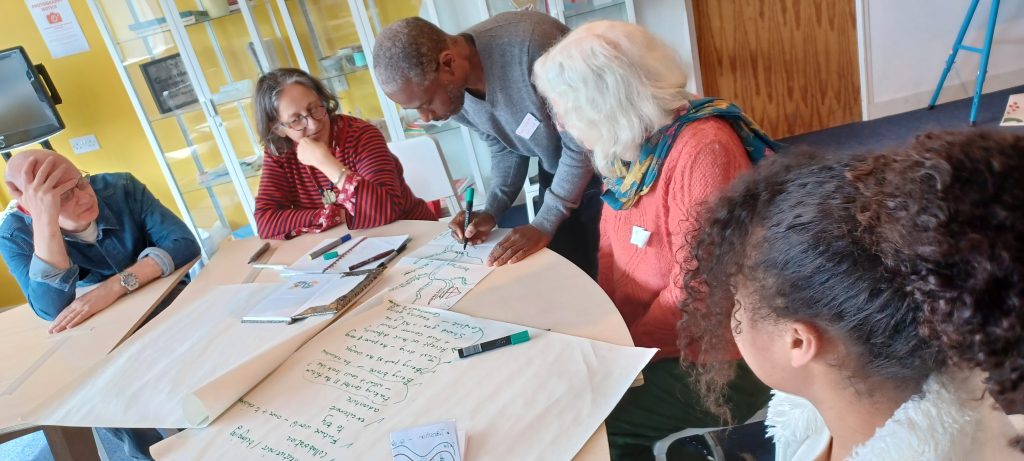
Both gatherings included open space for participants. Many juicy themes and knotty questions emerged and it was brilliant to explore the everyday challenges of our work together and learn how others are responding. We explored the energy crisis, protecting waterways, how to reignite a dormant Transition group, resourcing work for change, how to involve young people, be more creative, dealing with waste imaginatively and much more. The Caretaker group mined the collective intelligence in the room as they explore the shape an England & Wales hub could take.
The importance of place
A month later, a new group of Transitioners gathered near Wigan for the North West gathering. Ava, who attended both gatherings, was struck by the similar themes – and differences between the two gatherings. The mix of life experiences varied, more ethnically diverse in London and a rural/urban mix in the North West, and we extended the invitation to people from other grassroots organisations to join us here too, adding rich experience and new perspectives to our discussions.
At both events, participants brought questions about how to connect with a broader range of people, from other local groups, different political perspectives and how we consider wellbeing and the everyday needs in our community, so that people have headspace and freedom to be part of imagining the future.
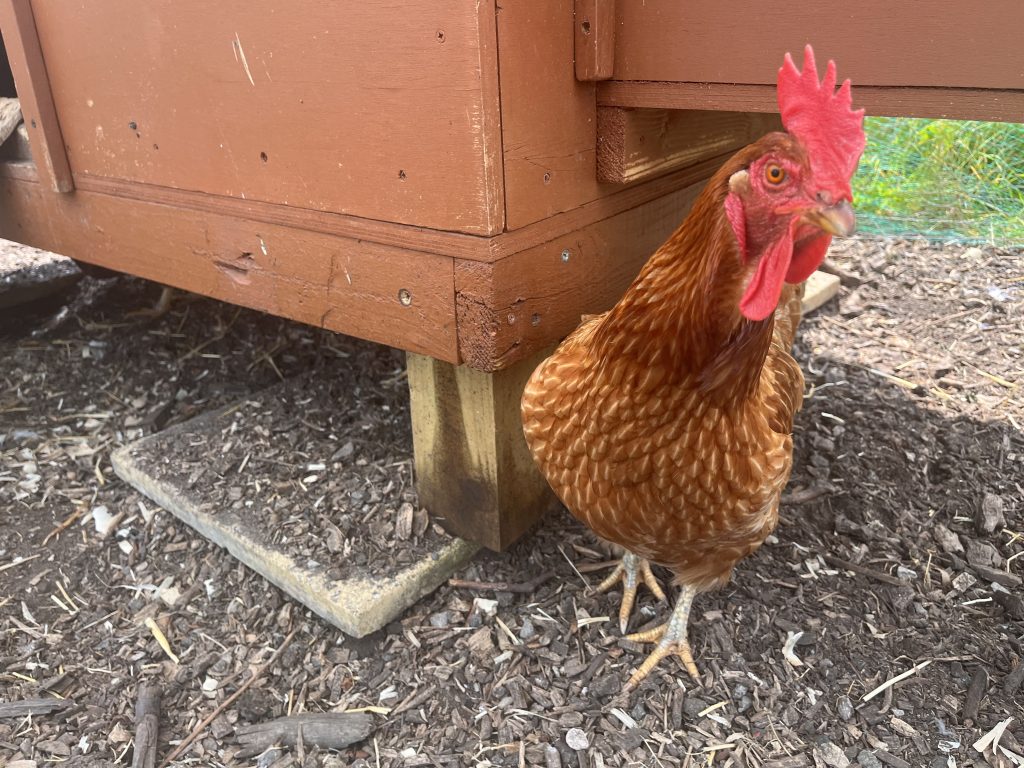
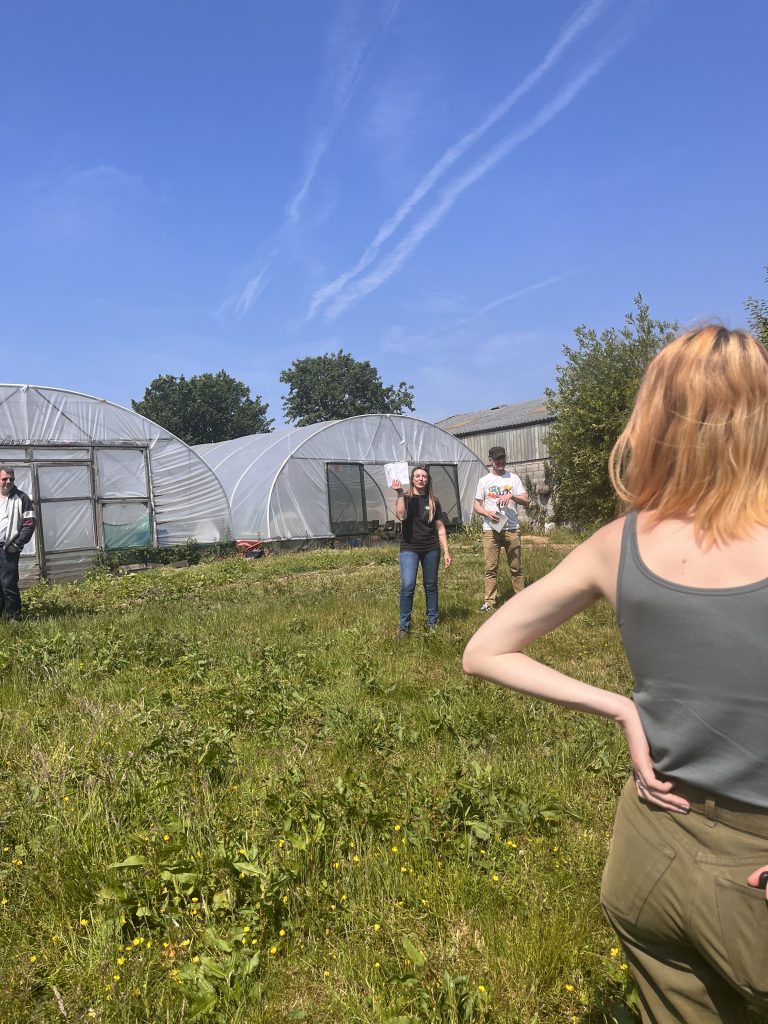
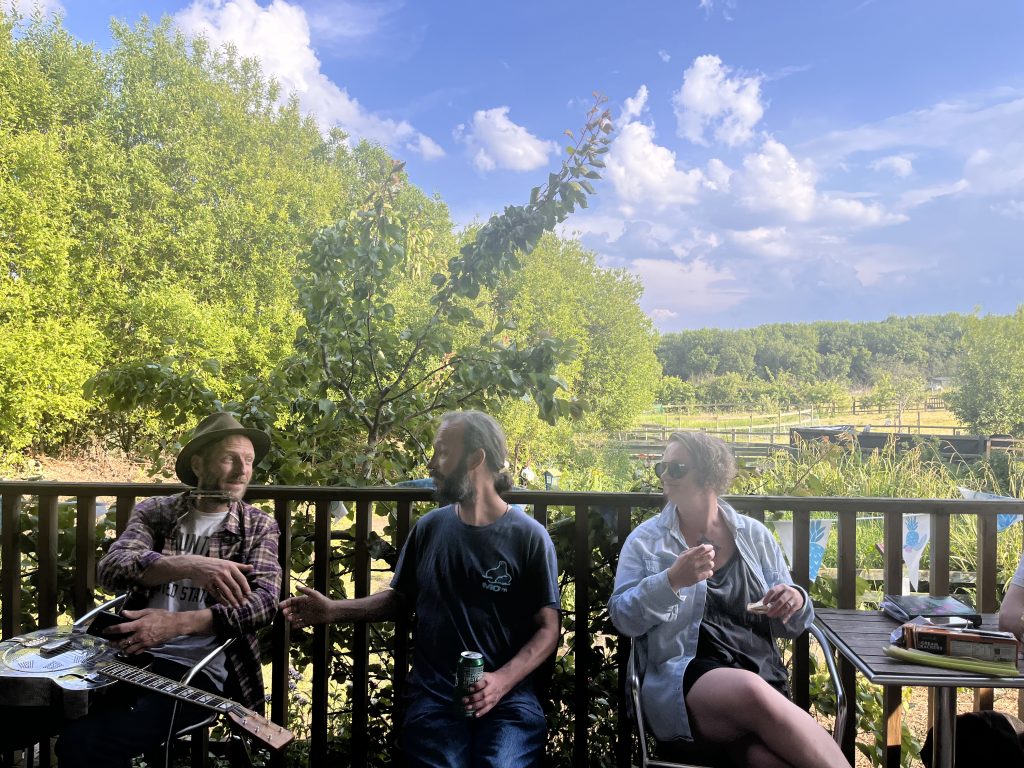
Ava also reflected on the importance of the place we met, the community care farm set up by Transition Billinge and Orrell: “The location itself certainly inspired. Spaces such as Greenslate farm have such an important place within the community with a multitude of different purposes: family space and place to bring school groups; a place celebrate; a place to chat with a slice of cake from cafe. However, it also acts a place for those often side-lined by society such as those with learning difficulties, who (founder and project manager) Rhiannon said are integrated as part of the community with no specific mention of why you are at the farm.”
At both gatherings, Rob Hopkins led us on an imaginary journey to 2030, a world that wasn’t a utopia, but where we had done everything possible to address the multiple crises we face. Stepping out of his time machine and into the future, “there were a wide range of responses from hope to widespread change to rebuilding from a place of rock bottom,” Ava recalled. Many felt their shoulders relax, as they glimpsed a world with less hurry and pressure, and more interconnection with other people and with nature. The bird song and insect buzz and smell of fresh, clean air were almost real (greatly helped at Greenslate by the live sounds of nature in the barn where we met).
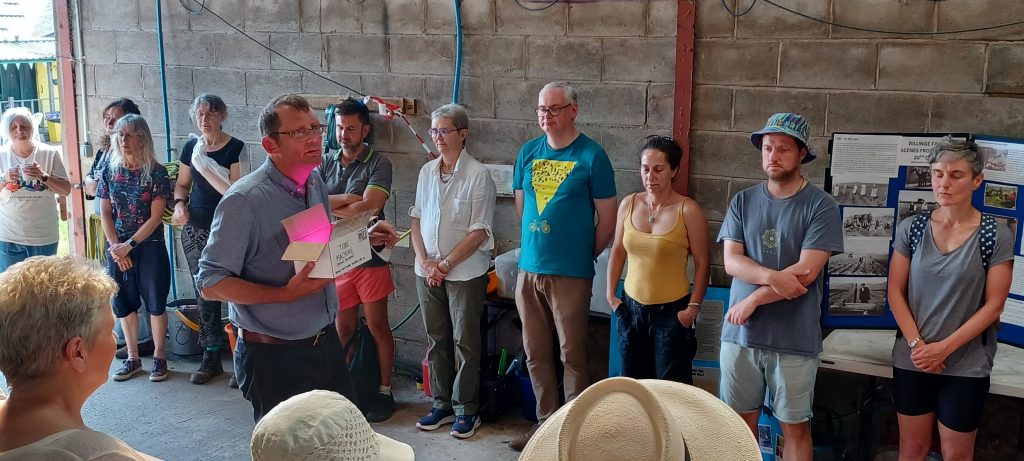
Imagining the future doesn’t make our present difficulties evaporate – but it gives us a north star to work towards and a collective vision of the difference our work could make. For Rob, it’s crucial to create a longing for the future, which can overcome the despair and anxiety many are experiencing. That longing and vision help us create an enticing journey to invite others to share and shape with us. We explored how we tell the stories of our work that move people – that go beyond facts and stats, to excite, engage and motivate new folks to respond. Participants created ‘invitation cards’ thinking how we open our activities to new people, and ensure they feel welcome and involved.
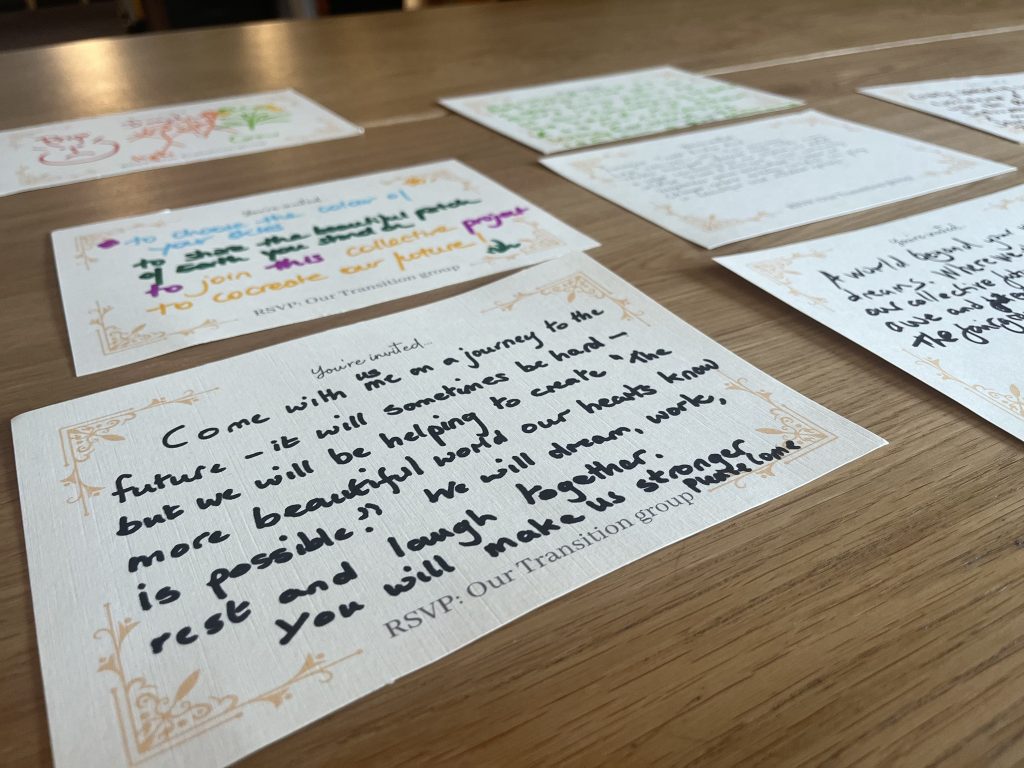
Our instincts told us that time together is time well spent. Amongst the useful feedback about programme and food, participants in the North West echoed the value being together in person, with space to explore: “I already knew building connections was vital but the weekend made me understand it on a deeper level.” said one. Another valued “that we can come together for mutual support”, and third said: “It helped to make the future visible.”
Huge thanks to all who contributed and attended our gatherings – there was a massive amount of work w behind the scenes and we are indebted especially to the Transition groups which hosted us.
What’s next?
The conversations and connections will continue – a meet up in London is planned for late July (get in touch to stay in the loop), and already some groups in the North West have planned visits to learn more about each other’s work and contexts.
Vive offers a fantastic space to continue getting to know each other, support each other and share questions and learning. The spaces give you the chance to grow community in regions and around themes of common interest.
We’ll continue to offer online events – more accessible for some. A series of Transition Skillshares is planned for autumn 2023 and regular space for Transitioners to connect, held by the Caretaker Group. We are also actively exploring how to support future gatherings – watch this space!
Find out more:
Read Rob’s full account of the London gathering here and Will’s poem here. Explore Greenslate Farm here. Connect with Transitioners in your region on Vive. Revisit our Gathering page.